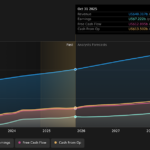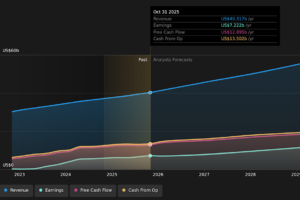
Even as the U.S. Treasury yield curve rings recessionary alarm bells, investors in corporate bonds have largely shrugged their shoulders.
Highly indebted firms are seen as a “canary in the coal mine” for a potential recession because their ability to pay down their obligations is sensitive to slowing economic growth. The lack of a protracted selloff in debt issued by sub-investment-grade-rated corporations has therefore been cited by those who remain confident that the U.S. economy can sustain its record expansion.
“Along with the equity market, the corporate bond market continues to send a much more positive signal for the outlook than the yield curve,” said Jim O’Sullivan, chief economist for High Frequency Economics, in a Tuesday note.
Last month, the spread between the 2-year Treasury note yield TMUBMUSD02Y, +0.27% and the 10-year note rate TMUBMUSD10Y, +2.01% saw its deepest inversion since 2007, falling to negative 5 basis points on Aug. 27. An inversion along that measure has preceded the last seven recessions, though the timing between an inversion and an eventual economic downturn varies widely.
See: 5 things investors need to know about an inverted yield curve
Yet investors in corporate bonds were unperturbed by talk of a recession.
“The markets are caught between two stools, as the bond market is rallying on slowing global economic data, while the risk markets are not reacting in similar fashion,” said Sean Simko, head of fixed-income portfolio management at SEI Investments, in emailed comments.
The yield premium that investors demand in return for owning a basket of benchmark bonds over risk-free Treasurys, or the credit spread, stood at 4.13 percentage points on Sept. 2, up from around 3.93 percentage points on July 26, a day before President Donald Trump imposed 10% tariffs on all remaining untaxed U.S. Chinese imports, according to an index provided by ICE Data Services.
That’s well below the post-crisis average of around 4.81 percentage points, according to CreditSights. Wider credit spreads can reflect when investors are less willing to take risks in search for yield.
Read: Yield gap between risky corporate debt and investment grade sinks to 12-year low
O’Sullivan said the recession probability in the next 12 months based on high-yield credit spreads stood at 14%. On the other hand, the New York Fed’s recession-probability model, which looks at the yield spread between the 3-month bill TMUBMUSD03M, +0.39% and 10-year note, estimated a 41% chance of an economic downturn. This yield-curve measure has been inverted since May.
The resilience of corporate bond prices and credit spreads to global growth fears and trade uncertainty could indicate expectations for corporate defaults to remain limited in the future, Robert Robis, chief fixed-income strategist at BCA Research, told MarketWatch.
He also pointed out that corporate earnings haven’t declined as much as investors had worried in the second quarter.
Earnings for S&P 500 SPX, -0.69% constituents fell by 0.4% in the second-quarter, with 75% of the listed companies reporting earnings that exceeded analysts’ consensus estimates, according to FactSet.
The lack of big ripples in credit spreads, said Robis, could also reflect the challenges of illiquidity in corporate bonds. Investors who wanted to cut down their holdings of corporate debt could take some time to offload their portfolio of securities without incurring discounts. The alternative to rising recession risks and geopolitical worries was simply to increase holdings of highly liquid government bonds.
“It’s easier to buy government bonds, instead of cutting back on corporate debt,” said Robis.
Most of all, investors in corporate debt say economic growth has remained resilient. The U.S. expanded at an annualized pace of 2% between April and June.
Corporate bond buyers say households will power the economy forward, with a personal savings rate of 7.7% among U.S. households in July indicating that consumers have room in their budgets to keep spending. On the employment front, job gains have not slowed dramatically, nor has the jobless rate moved upward from multidecade lows.
“If you look at the economy objectively, it’s hard to conclude we’re going to be in a recession in 2020,” said Gautam Khanna, senior portfolio manager at Insight Investment, in an interview.
The confidence in the strength of U.S. consumers has helped ease worries that a weak manufacturing sector will act as a harbinger of a recession. The Institute for Supply Management’s manufacturing gauge fell to a reading of 49.1 in August on Tuesday, suggesting that factory activity may have shrunk under the weight of unrelenting trade uncertainty.
“At this point data such as the ISM report is not a strong enough catalyst to the reverse” demand for corporate bonds, said Simko, who added that easy monetary policy among global central banks would continue to spur demand for higher-income-producing assets.










